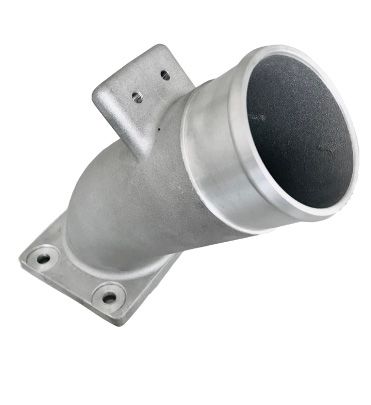Alcast Company for Dummies
Table of ContentsAlcast Company for BeginnersAlcast Company - TruthsAbout Alcast CompanyA Biased View of Alcast CompanyThe 8-Minute Rule for Alcast CompanyThe 4-Minute Rule for Alcast Company
Chemical Contrast of Cast Aluminum Alloys Silicon promotes castability by reducing the alloy's melting temperature and improving fluidness throughout spreading. Additionally, silicon adds to the alloy's toughness and wear resistance, making it valuable in applications where resilience is vital, such as auto components and engine components.It likewise improves the machinability of the alloy, making it much easier to refine into finished products. In this means, iron contributes to the overall workability of aluminum alloys.
Manganese adds to the strength of aluminum alloys and boosts workability (Foundry). It is frequently utilized in wrought light weight aluminum products like sheets, extrusions, and profiles. The visibility of manganese aids in the alloy's formability and resistance to splitting during manufacture processes. Magnesium is a lightweight aspect that offers strength and influence resistance to aluminum alloys.
9 Simple Techniques For Alcast Company
It allows the manufacturing of light-weight parts with superb mechanical properties. Zinc improves the castability of light weight aluminum alloys and aids regulate the solidification process during casting. It enhances the alloy's stamina and solidity. It is often found in applications where complex forms and great information are essential, such as ornamental castings and certain auto components.

The key thermal conductivity, tensile strength, yield toughness, and elongation differ. Select appropriate basic materials according to the efficiency of the target item generated. Amongst the above alloys, A356 has the highest thermal conductivity, and A380 and ADC12 have the lowest. The tensile limit is the opposite. A360 has the most effective return strength and the greatest elongation rate.
Not known Details About Alcast Company

In precision spreading, 6063 is appropriate for applications where complex geometries and premium surface area finishes are paramount. Instances include telecommunication enclosures, where the alloy's exceptional formability allows for smooth and visually pleasing designs while maintaining architectural honesty. In the Lights Solutions industry, precision-cast 6063 elements create sophisticated and reliable lighting components that call for intricate forms and good thermal efficiency.
The A360 exhibits superior prolongation, making it excellent for facility and thin-walled elements. In precision spreading applications, A360 is well-suited for industries such as Customer Electronics, Telecommunication, and Power Devices.
Alcast Company Things To Know Before You Buy
Its one-of-a-kind properties make A360 a valuable choice for precision casting in these industries, improving item longevity and quality. Casting Foundry. Light weight aluminum alloy 380, or A380, is a widely used casting alloy with several distinct features.
In precision spreading, aluminum 413 shines in the Customer Electronics and Power Tools industries. It's commonly made use of to craft complex components like smart device real estates, electronic camera bodies, and power device cases. Its accuracy is impressive, with tight resistances up to 0.01 mm, making sure flawless item assembly. This alloy's premium deterioration resistance makes it an outstanding choice for outside click for info applications, guaranteeing resilient, long lasting items in the mentioned industries.
How Alcast Company can Save You Time, Stress, and Money.
As soon as you have actually determined that the aluminum die casting process appropriates for your project, a vital next step is making a decision on one of the most ideal alloy. The aluminum alloy you select will significantly influence both the spreading process and the residential properties of the end product. As a result of this, you should make your decision thoroughly and take an educated method.
Figuring out one of the most appropriate light weight aluminum alloy for your application will imply evaluating a large variety of characteristics. These relative alloy features adhere to the North American Die Spreading Association's standards, and we've split them into 2 classifications. The first group addresses alloy features that affect the production procedure. The second covers qualities influencing the residential or commercial properties of the final product.
Alcast Company - Questions
The alloy you pick for die casting directly impacts a number of aspects of the casting process, like how very easy the alloy is to collaborate with and if it is susceptible to casting flaws. Hot splitting, additionally referred to as solidification cracking, is a regular die casting issue for light weight aluminum alloys that can cause internal or surface-level rips or fractures.
Certain light weight aluminum alloys are much more at risk to hot breaking than others, and your choice needs to consider this. It can harm both the cast and the die, so you must look for alloys with high anti-soldering residential properties.
Corrosion resistance, which is currently a remarkable characteristic of light weight aluminum, can differ substantially from alloy to alloy and is an important characteristic to think about depending upon the ecological conditions your product will be subjected to (Aluminum Casting). Wear resistance is another residential property frequently sought in light weight aluminum products and can set apart some alloys